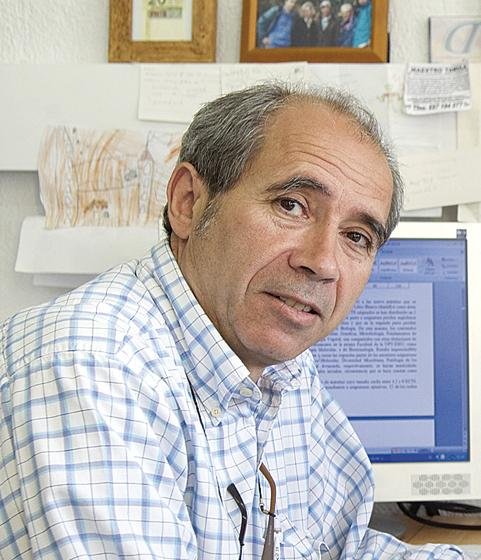"That's what we have to do: instead of shutting down what we know, investigating what we don't know."

If I didn't get to Big Bang, but I was going back, I remember that when I was studying the race, in the subject of geology, plate tectonics was on top. It was then that this revolutionary hypothesis was imposed. This affected me. Later, one of the main milestones for me was the summit of Rio, dedicated to conservation, in 1992. In fact, I later released two articles on biodiversity in Elhuyar magazine. And in those years, Edward O. Wilson published his book The diversity of life. It has not lost relevance and many of my students read it, despite the years that have passed.
Wilson himself, well before writing this book, extended the formula S = c A z, which relates the number of species (S) to the surface (A). The truth is that this formula, taking into account the enormous decline of the forests, brings us absolutely dark forecasts: when the surface of a natural territory is reduced ten times, half of the species will disappear, even without knowing it. We have been foretold by an almost apocalyptic horizon for 2022. This struck me a lot and today, because the trends of habitat loss have not been corrected and the calculations of species loss continue in the same magnitude.
And then there is the article by Ferdinando Boero [ The Study of Species in the Era of Biodiversity: A Tale of Stupidity ], another milestone. In this article, Boero has shown that some curves have been in scientific policy and that money goes another way even though biodiversity is the goal. Consequently, for a young scientist it is a professional suicide to be taxonomist, expert in biodiversity.
We are experiencing two crises of biodiversity: we are losing species (crisis of species loss), at the same time we have a crisis of knowledge of biodiversity, we have fewer and fewer experts and work on it.
Based on the data we have, on a near horizon, biodiversity will reach half. The forecasts are impressive, with erect hairs.
Boero has shown that investments in biodiversity are not intended for basic research, but to computerize the knowledge we already have. This is the case of giant programs like Tree of life. But what they do is to bind what we know and not investigate what we do not know. And that's what we have to do, search and find species that we don't know, reduce our ignorance. How many millions of species are missing? How many will be destroyed before they know them?
Buletina
Bidali zure helbide elektronikoa eta jaso asteroko buletina zure sarrera-ontzian











